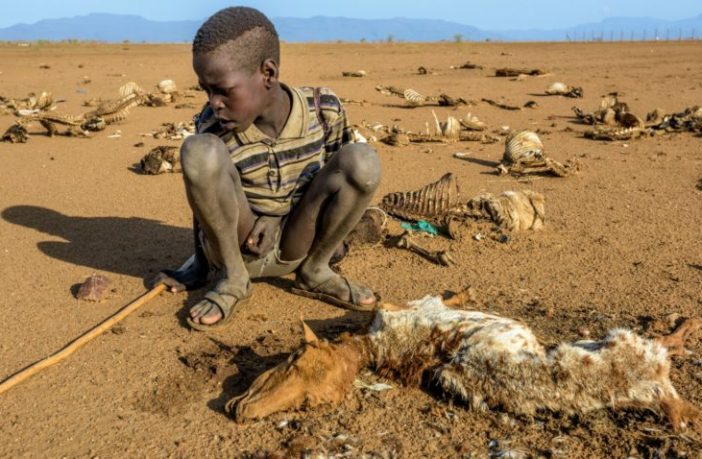- A new report, titled ‘Existential Climate-related Security Risk’ released by the Breakthrough National Centre for Climate Restoration paints a picture of “outright chaos” and “political panic” unless something is done strategically and systematically to mitigate the risks of climate change.
- A 2050 scenario outlined in the report reveals that accelerating climate- change impacts pose large negative consequences to humanity which might not be undone for centuries.
- The researchers argue that the only way forward is establishing a worldwide zero-emission, industrial and economic strategy.
A new report, titled ‘Existential Climate-related Security Risk’ released by Breakthrough National Centre for Climate Restoration says that a mobilization “akin in scale to the World War II emergency” is needed to prevent climate change becoming “an existential threat to human civilization.”
The new report pulls no punches, ‘Climate change intersects with pre-existing national security risks to function as a threat multiplier and accelerant to instability, contributing to escalating cycles of humanitarian and socio-political crises, conflict and forced migration.
Climate-change impacts on food and water systems, declining crop yields and rising food prices driven by drought, wildfire and harvest failures have already become catalysts for social breakdown and conflict’.
The report also explains that climate scientists may err on the side of “least drama”, whose causes may include adherence to the scientific norms of restraint, objectivity and scepticism, and may under predict or down-play future climate changes.
This 3°C scenario, the paper claims, will see semi-permanent El Niño conditions prevail in parts of the world, ecosystems collapse, and will lead to “lethal heat conditions, beyond the threshold of human survivability.” Reduced water availability could affect up to 2 billion people.
The fact that this is a possibility means, firstly, that drastic measures are needed to avert disastrous climate change. Secondly, extreme scenario planning is a necessity in the case that these measures are not undertaken — or aren’t enough.
“It should be noted,” the paper says, “that this is far from an extreme scenario: the low-probability, high-impact warming (five percent probability) can exceed 3.5–4°C by 2050.”id00:24Ad
The researchers argue that the only way forward is establishing a worldwide zero-emission, industrial and economic strategy.
“To reduce this risk and protect human civilization, a massive global mobilization of resources is needed in the coming decade to build a zero-emissions industrial system and set in train the restoration of a safe climate,” the paper explains.
The 2050 scenario ‘Thirty-five percent of the global land area, and 55 percent of the global population, are subject to more than 20 days a year of lethal heat conditions, beyond the threshold of human survivability. Aridification emerges over more than 30 percent of the world’s land surface. Desertification is severe in southern Africa, the southern Mediterranean, west Asia, the Middle East, inland Australia and across the south-western United States’.
What is interesting about this paper is that one of its two authors is Ian Dunlop, formerly an international oil, gas and coal industry executive.
The paper’s foreword, written by Admiral Chris Barrie, explains, “We need a social tipping point that flips our thinking before we reach a tipping point in the climate system.”
Author: Bryan Groenendaal











